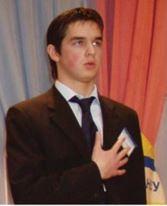 Павло Фаге
Павло Фаге
Рік випуску: 2005
Сертифікат першого ступеня "Управлінець" №19
Director of Operations & Talent Management at Ostrovok.ru
Рефлексія, приурочена 25-річчю ліцею
Березень 2016 року
I currently am the Director of Operations & Talent Management at Ostrovok.ru – a leading online travel company in CIS with hundreds of thousands of active users. My responsibilities comprise customer support operations, recruiting, culture, IT, performance management, and a number of other functions. I presently have over 150 professionals under management.
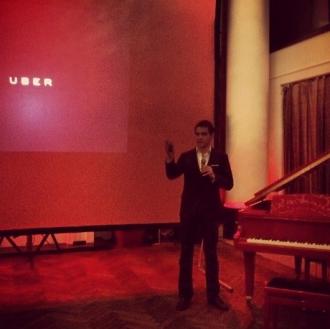 Prior to Ostrovok, I had been an international launcher at Uber. I led the launches of 6 markets around the globe, and watched Uber expand from 200 to 6000 employees, and from $1B to $65B in market cap.
Prior to Ostrovok, I had been an international launcher at Uber. I led the launches of 6 markets around the globe, and watched Uber expand from 200 to 6000 employees, and from $1B to $65B in market cap.
Before Uber, I had spent 7 years studying in the US and ultimately secured an MBA from Cornell University.
Kiev Business Lyceum has played a major role in the formation of my overall worldview and my global aspirations, and 90%+ of all the value I derived from it was driven by the rich suite of management training initiatives: simulation games, debate competitions, business projects, and constant meetings with Alexander Prokofyevich, Petr Mihailovch, Farid Zaharovich, Yuriy Nikolaevich, and other key mentors.
I’d say that the top three activities that drove most of the learning value for me were as follows:
1. Simulation games
Having the opportunity to design a complex educational project from scratch with a team of like-minded peers and mentors, and then deploy it into a large group of users (students), has been an absolutely invaluable experience in terms of project management and execution. I have always dreamed of being an entrepreneur, and these simulation games (e.g. the stock exchange and the banking simulations) provided a virtually risk-free arena for me to practice designing complex systems, rolling them out to the public, and watching them being interacted with by real users. It was true entrepreneurship – building something new, testing it against the “market”, and then extracting the right lessons to make future iterations more robust.
2. Debate tournaments
During my time as a student at the lyceum, I must have led teams through at least 50 distinct debate competitions, each involving anywhere from one to five hours of intense conversations about all kinds of business related and applied philosophy topics. These debates engaged a whole host of critical skillsets – preparing theses and schematics that summarized the gist of a target document, rapidly digesting opponents’ arguments and then just as quickly generating a counter view, presenting in front of an astute audience with just several minutes’ worth of preparation, convincing the judges that your argument was more sound than that of the opponent, drawing schematics to support your position, asking the right questions, coming up with the right answers. And then doing post-event deep dive reviews with super shrewd mentors who would deconstruct the entire argument chain into small pieces and teach us how to improve our mental models and execute better next time. These are all pivotal critical thinking and communication skills that permeate every facet of human endeavor, not only business – making the debate tournaments perhaps the most intense and formative learning experience I have ever gone through.
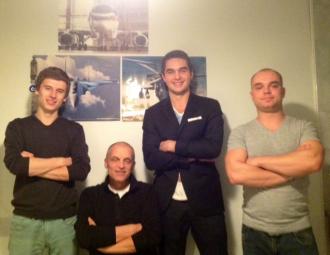 3. Project review meetings and reflective analyses
3. Project review meetings and reflective analyses
Whenever we’d organize the Model United Nations, or go through a round of simulation games, or complete a debate tournament, or wrap up a “prof kurs” class – we would have numerous review meetings with the key student managers and professor mentors. We would deconstruct projects, generate constructive criticisms of our execution, discuss difficult management concepts, draw schematics and plan for the future. These reviews taught us to take initiative, engage our reflective and analytical faculties, figure out how to execute better, become more efficient, inspire more action. I am deeply grateful to Alexander Prokofyevich and the rest of our mentors for always giving us feedback, helping us ask the right questions, and routinely kicking our ass to go and get down to business. I have hired dozens of people over the course of my career, and have 15 managers reporting to me today – and I always do my best to give them honest, constructive feedback on how to improve. I would never have learned to do that properly had it not been for my mentors at the lyceum.
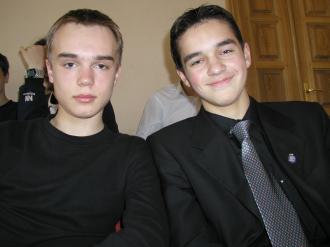
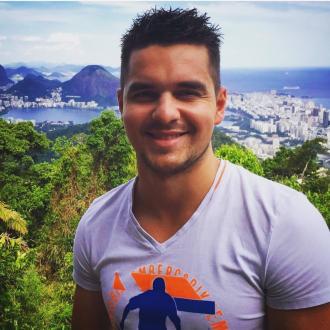

.jpeg)
.jpeg)
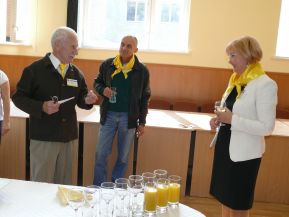
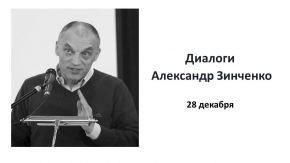
.jpeg)
.jpeg)
.jpg)
.jpeg)
.jpg)
.jpeg)
.jpg)
.jpeg)
Коментарi